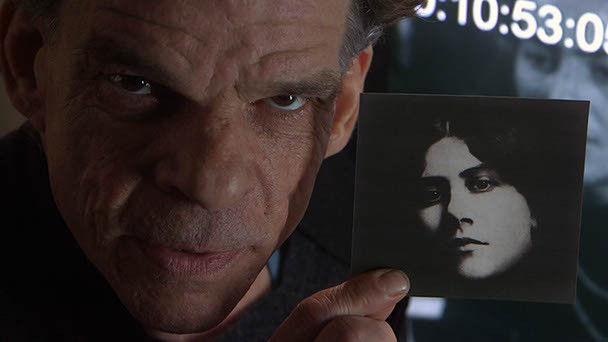
"Ne toliko ekraniziracija Austerlitza, koliko film o knjizi."
ulomak:
www.fondationshoah.org/FMS/Austerlitz-un-film-de-Stan-Neumann
In her essay on the late German author W.G. Sebald, Susan Sontag began with the question: “Is literary greatness still possible?” The answer was undoubtedly yes, and she went on to describe the brilliant way in which Sebald mixed fact and fiction in a series of books that tackled Europe’s destructive past through the melancholic peregrinations of a narrator – often the author himself.
Published in 2000, the novel combined many of the author’s favored themes into a single character: Austerlitz (Lavant), a wandering scholar obsessed with 19th century architecture and susceptible to bouts of depression, who gradually uncovers the truth about his past – one that’s inexorably linked to the destruction of World War Two.
Both the novel and the movie take us through Europe’s shattered history, with stops in Brussels, Greenwich, Antwerp, Marienbad, Prague and Paris, though the film takes an additional meta-step by making Sebald himself another subject of the story. Beginning with Neumann describing how he first came upon the novel, and featuring scenes where he dissects the author’s prose (and discovers some heavy borrowing from Marcel Proust, Franz Kafka and Walter Benjamin), Austerlitz is not so much a filmed book as it is a film about a book, breaking down the walls that divide documentary and fiction, just as Sebald blurred the lines between the two in his writing.
It’s an austere technique that may put off viewers who prefer either one genre or the other, but it soon offers its rewards as we follow Austerlitz through his many digressions and obsessions – with train stations, hidden doorways, bricked-up windows and ornate facades – until he arrives at the heart of his tale, and we learn how seemingly intellectual preoccupations would lead him to unearth the dark secrets of his own life. Again one-upping the book, Neumann inserts details of his personal history during these latter sections, blending the film's auteur with the novel's author and character.
Reciting Sebald’s text directly to the camera, Lavant gives one of his typically physical performances, portraying a delirious savant who oscillates between fascination and desperation as he digs up various cultural artifacts that resonate with his past. Neumann inserts lots of the photos featured in the original book – one of the trademarks of Sebald’s style – while adding a few more elements, including footage from a propaganda film made by the Nazis at the Theresienstadt concentration camp.
While the mix of photographs and moving pictures is nothing new (there are moments in Austerlitz that recall the work of Chris Marker), Neumann uses the voice of Sebald to give his imagery a particular weight, even if the HD lensing (by Ned Burgess) can sometimes feel too crisp compared to the rest of the material. The result is perhaps the closest one can get to reading the original text – ever-respectful of the writer’s words while cleverly, and movingly, translating them to the big screen.
- Jordan Mintzer
+
kosmopolis.cccb.org/en/sebaldiana/
Nema komentara:
Objavi komentar